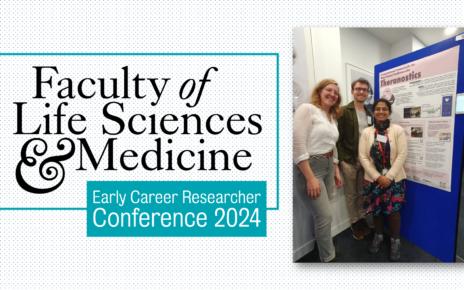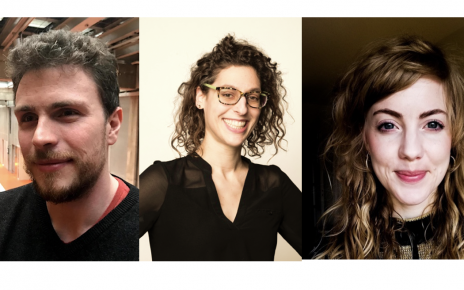 Emma Frid has been awarded an International Postdoctoral Grant from the Vetenskapsrådet / Swedish Research Council to conduct research to advance musical frontiers for people with disabilities through multimodal feedback and artificial intelligence. The scholarship will be administered by the KTH Royal Institute of Technology in Stockholm. At the STMS Laboratory, she will be hosted by the COSMOS project.
Emma Frid has been awarded an International Postdoctoral Grant from the Vetenskapsrådet / Swedish Research Council to conduct research to advance musical frontiers for people with disabilities through multimodal feedback and artificial intelligence. The scholarship will be administered by the KTH Royal Institute of Technology in Stockholm. At the STMS Laboratory, she will be hosted by the COSMOS project.
Emma received her PhD in January 2020 from KTH, in Sound and Music Computing from the Division of Media Technology and Interaction Design. Her PhD thesis, entitled “Diverse Sounds – Enabling Inclusive Sonic Interaction,” was supervised by Professor Roberto Bresin and focused on how Sonic Interaction Design can be used to promote inclusion and diversity in music-making.
About Emma Frid’s Swedish Research Council International Postdoctoral Grant, awarded Spring 2020
Accessible digital musical instruments – Multimodal feedback and artificial intelligence for improved musical frontiers for people with disabilities
Subject area: Medical technology, other medicine and health care
Abstract: According to Article 27 of the UN Declaration of Human Rights, everyone has the right to freely participate in the cultural life of the community. Despite this, many groups are still largely excluded from music-making. Today, data-driven methods and artificial intelligence (AI) allow for a high level o customization and personalization of interactive systems. However, such methods have not yet been fully explored as a means of promoting access to music-making through customization of music technology. The purpose of this project is to investigate how multimodal feedback and AI tools can be used to widen participation in music creation with digital musical instruments. The research relies on a user-centered design process based on iterative prototyping together with users to design and develop accessible digital musical instruments for persons with disabilities. A mixed methodology based on both qualitative and quantitative methods will be used. Focus will be on longitudinal observation studies designed to evaluate the efficiency of developed systems. The main contribution of the work lies in the creation of more inclusive music technologies for persons with disabilities. Findings can be applied not only to music applications but also to other systems involving Human-AI interaction, as well as provide insights on how interactive systems can be designed to support accessibility.
Some of Emma Frid’s recent projects:




